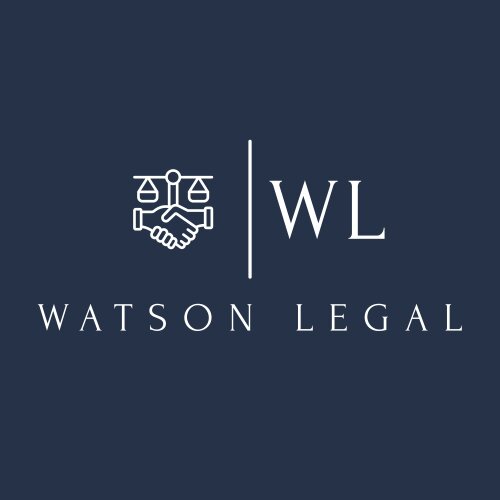Best Work Injury Lawyers in Athlone
Share your needs with us, get contacted by law firms.
Free. Takes 2 min.
List of the best lawyers in Athlone, Ireland
1. About Work Injury Law in Athlone, Ireland
Work injury law in Athlone follows national Irish statutes and regulatory guidance. Employees and some categories of workers can seek compensation if injured at work or as a result of work activities. The key pathways include a non‑fault claim through the Injuries Board Ireland (PIAB) or a court claim for damages under common law. The Health and Safety Authority (HSA) enforces workplace safety standards, while PIAB focuses on evaluating compensation for personal injuries.
In Athlone, as in the rest of Ireland, the law does not create a different framework by town. However, residents often interact with local courts, doctors, and solicitors to navigate claims efficiently. It is important to understand the two major avenues: a PIAB assessment for compensation and potential court actions if liability is contested or if more complex damages are involved. Being aware of time limits and medical reporting requirements helps prevent delays that could affect a claim.
Key takeaway: You typically have a window to start a claim, and you can choose between PIAB processing and pursuing damages in court. Local factors such as the timing of medical reports and employer insurance can influence how a claim proceeds.
"The Injuries Board Ireland assesses and processes personal injury claims, including workplace injuries, to determine compensation on a no‑fault basis."
For general guidance, see official sources on work injuries and compensation processes. The Injuries Board (PIAB) and the Health and Safety Authority (HSA) provide authoritative frameworks for working through injuries sustained at work. Their guidance helps residents of Athlone understand eligibility, processes, and timelines.
2. Why You May Need a Lawyer
- Slip or fall in a busy Athlone hotel or restaurant. You may need a solicitor to establish breach of duty, gather incident reports, and advise on whether PIAB is the right first step or if a direct damages claim is preferable.
- Back or repetitive strain injury from warehouse work in Athlone. A lawyer can document cumulative injuries, negotiate with insurers, and preserve evidence before it fades.
- Construction site accident involving scaffolding near Athlone. Legal counsel can coordinate with safety inspectors, compile witness statements, and evaluate liability between employer, contractor, and site manager.
- Defective equipment causing injury in a local manufacturing facility. A solicitor can advise on product liability paths in addition to employer liability and how PIAB may apply.
- Employer failed to report an injury promptly or withheld safety information. A legal adviser can ensure proper documentation, preserve evidence, and assess remedies under both statutory regimes and civil actions.
- You are self-employed or a contractor. A lawyer can clarify how PIAB rules apply to non‑employee workers and whether alternative routes are available for damages.
3. Local Laws Overview
Safety, Health and Welfare at Work Act 2005 (as amended) imposes duties on employers to provide safe workplaces and to manage risks. It empowers inspectors to investigate workplace incidents and issue compliance notices. The Act remains a cornerstone for how injuries at work are prevented and addressed in Ireland, including Athlone workplaces.
Industrial Injuries Act 1956 (as amended) provides for benefits and compensation to workers who suffer injuries as a result of their employment. It underpins the eligibility for fixed or assessed payments in many workplace injury scenarios and is complemented by PIAB processes when pursuing non‑fault compensation.
Civil Liability and Courts Act 2004 (as amended) governs aspects of personal injury actions brought in the Irish courts. It interacts with PIAB in determining damage levels and the way claims progress to litigation in more complex cases.
Recent updates to regulatory practice emphasize timely reporting, thorough medical evaluation, and clearer pathways from PIAB assessments to potential litigation if required. For Athlone residents, the practical effect is a structured route: report the incident, obtain medical documentation, file with PIAB if appropriate, and consult a solicitor if liability or damages require court action.
Useful official resources to explore these laws include the Health and Safety Authority and the Injuries Board. These bodies set out worker rights, employer duties, and the processes for claims and compensation.
4. Frequently Asked Questions
What is the Injuries Board and how do I start a claim?
The Injuries Board, known as PIAB, assesses personal injury claims after an accident at work. To start, you complete an application, provide medical reports, and the board arranges a medical assessment. The process aims to determine a fair compensation figure without going to court.
What is considered a work injury under Irish law?
A work injury includes any illness or physical injury arising from work tasks or conditions in the workplace. It can include accidents, repetitive strain injuries, and certain mental health conditions caused by work exposure, if linked to work activities.
How long do I have to lodge a claim after an injury at work?
The general time limit is two years from the date of the injury for most personal injury claims. Special circumstances may apply for younger claimants or those with capacity issues. Always seek advice early to confirm your timeline.
Do I need a solicitor to handle a work injury claim?
You do not have to hire a solicitor to use PIAB, but a solicitor can help you prepare, preserve evidence, and navigate complex liability issues or court actions if needed.
How much compensation can I expect from a work injury claim?
Compensation varies by the severity of injury, medical costs, loss of earnings, and other damages. PIAB issues a medical assessment and a compensation offer, which can be accepted or challenged with legal advice.
Can I pursue a court case instead of PIAB?
Yes. If liability is disputed or you require damages not fully addressed by PIAB, a solicitor can guide you toward a civil court action for damages.
Do I need to prove employer fault to claim compensation?
Not always. PIAB operates on a no‑fault basis for personal injuries, but proving fault may be necessary for certain court claims or if your damages include specific liability elements.
Will my medical expenses be covered in a work injury claim?
Medical costs related to the injury are typically included in compensation assessments. You should keep all receipts and medical reports for accurate claims.
What is the difference between PIAB compensation and court damages?
PIAB provides a no‑fault, streamlined compensation assessment. Court damages involve proving liability and may yield different award levels for pain and suffering and other losses.
Can I claim for psychological injuries or stress related to work?
Personal injury claims can cover psychological injuries if they are caused by a work incident or work environment. A medical assessment and legal review are essential to establish causation and compensation.
Do I need to inform my employer about the injury in writing?
Most employers require timely reporting of injuries and the incident details. Written notification helps evidence the event and supports your claim process with PIAB or in court.
Is there free initial legal advice available in Athlone?
Some solicitors offer initial consultations on a no‑obligation basis. You can also contact local law societies or citizen information points for guidance and referrals. A Law Society directory can help you find a solicitor near Athlone.
5. Additional Resources
- - The official body for assessing personal injury claims, including work injuries. piab.ie
- - Regulates workplace health and safety, issues guidance, and enforces safety standards. hsa.ie
- - Directory and resources to find a solicitor in Athlone and obtain legal representation. lawsociety.ie
6. Next Steps
- Collect incident reports, medical records, pay slips, and any correspondence with your employer. Aim to assemble these within 7 days of the injury.
- Obtain a medical assessment and keep all treatment notes to support your claim. This strengthens both PIAB and potential court cases.
- Even if you plan to pursue PIAB, a written notification helps establish the incident timeline and creates a record for proceedings.
- A local solicitor can advise on whether PIAB or court action is best, and help you prepare evidence.
- If liability is contested or damages are complex, a solicitor may recommend pursuing a court action in addition to PIAB.
- Your solicitor can guide you through the forms, medical reports, and submission process. Expect a response within several months.
- Stay in communication with your solicitor and PIAB to avoid missing deadlines or medical assessments.
Lawzana helps you find the best lawyers and law firms in Athlone through a curated and pre-screened list of qualified legal professionals. Our platform offers rankings and detailed profiles of attorneys and law firms, allowing you to compare based on practice areas, including Work Injury, experience, and client feedback.
Each profile includes a description of the firm's areas of practice, client reviews, team members and partners, year of establishment, spoken languages, office locations, contact information, social media presence, and any published articles or resources. Most firms on our platform speak English and are experienced in both local and international legal matters.
Get a quote from top-rated law firms in Athlone, Ireland — quickly, securely, and without unnecessary hassle.
Disclaimer:
The information provided on this page is for general informational purposes only and does not constitute legal advice. While we strive to ensure the accuracy and relevance of the content, legal information may change over time, and interpretations of the law can vary. You should always consult with a qualified legal professional for advice specific to your situation.
We disclaim all liability for actions taken or not taken based on the content of this page. If you believe any information is incorrect or outdated, please contact us, and we will review and update it where appropriate.










